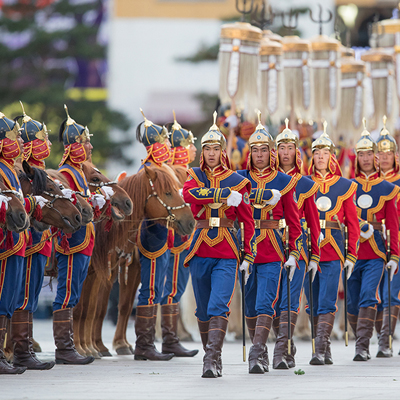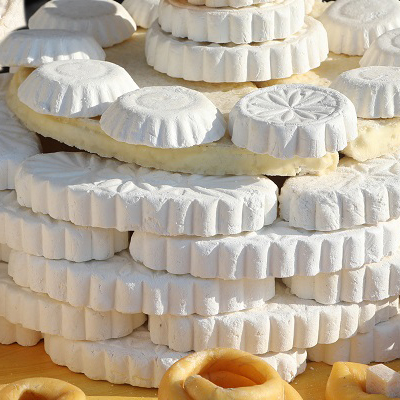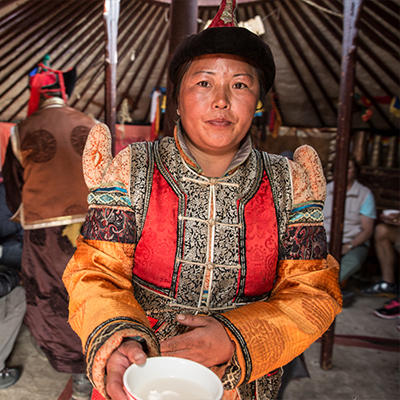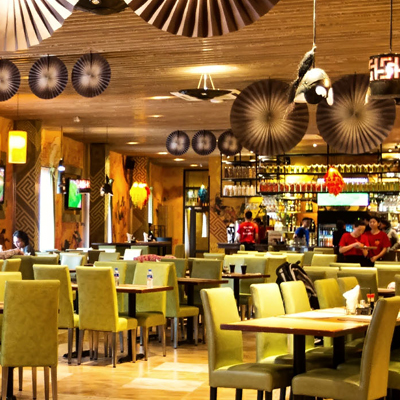
Mongolian Beverages
Mongolian beverages
Mongolian popular beverages reflect both traditional nomadic practices and influences from neighboring cultures. Here's a detailed look at some of the most notable beverages enjoyed in Mongolia:
1. Airag (Fermented Mare's Milk)
- Description: Airag is perhaps the most iconic Mongolian beverage, traditionally made by fermenting mare's milk. It holds cultural significance and is often consumed during festive occasions.
- Production: Fresh mare's milk is poured into a leather or wooden container known as a "khukhuur." The milk naturally ferments due to the presence of lactic acid bacteria and yeast in the environment. The fermentation process typically takes several hours to a day, resulting in a mildly alcoholic beverage with a sour, tangy flavor.
- Cultural Importance: Airag is deeply embedded in Mongolian nomadic culture, where it serves not only as a refreshing drink but also as a symbol of hospitality and unity. It is commonly shared among family members, guests, and during celebrations such as Naadam.
2. Suutei Tsai (Mongolian Milk Tea)
- Description: Suutei tsai is a traditional Mongolian milk tea made with black tea, milk, water, and sometimes salt. It is a staple beverage enjoyed throughout the day, particularly during cold winters.
- Ingredients: The tea is brewed using strong black tea leaves, boiled in water until the desired strength is achieved. Milk and sometimes salt are added to the tea, creating a rich and creamy beverage with a slightly salty taste.
- Usage: Suutei tsai is often served hot and accompanied by traditional Mongolian snacks such as aaruul (dried curd) or boortsog (fried cookies). It provides warmth and nourishment in the harsh Mongolian climate and is a symbol of hospitality and friendship.
3. Milk Tea with Butter (Tibetan Influence)
- Description: This beverage, influenced by Tibetan culture, combines black tea, milk, butter (often from yak milk), and sometimes salt. It is similar to suutei tsai but with the addition of butter for a richer flavor and added nutrition.
- Preparation: The tea is brewed with black tea leaves and boiled in water. Yak butter, known for its rich flavor and nutritional benefits, is added along with milk and salt to taste. The mixture is then churned or stirred vigorously to create a frothy consistency.
- Health Benefits: Milk tea with butter is prized for its high calorie content and provides essential nutrients in regions where food sources may be limited. It is also believed to aid in digestion and provide energy for nomadic herders and travelers.
4. Arkhi (Traditional Mongolian Spirit)
- Description: Arkhi is a traditional distilled spirit or vodka made from fermented milk, typically from cow, yak, or mare's milk. It is considered one of the oldest alcoholic beverages in Mongolia and is consumed during celebrations and social gatherings.
- Production: Arkhi is produced through a process of distillation, where fermented milk is heated to evaporate the alcohol, which is then condensed back into a liquid form. It has a strong alcohol content, ranging from 12% to 15% or higher.
- Cultural Significance: Arkhi holds cultural and ceremonial importance in Mongolian traditions, often used in toasts and rituals during festive occasions, weddings, and religious ceremonies. It symbolizes hospitality, friendship, and community bonding.
5. Beer and Modern Beverages
- Description: In urban areas like Ulaanbaatar, beer has become increasingly popular among younger generations and urban dwellers. Local breweries produce beers ranging from light lagers to more robust brews, often incorporating traditional Mongolian ingredients and flavors.
- Varieties: Mongolian breweries offer a variety of beers, including brands like Chinggis Beer, crafted to appeal to both local tastes and international standards. Beer consumption is common in bars, restaurants, and social gatherings, reflecting modern influences on Mongolian drinking culture.
Mongolian beverages reflect a blend of ancient traditions, nomadic practices, and influences from neighboring cultures. From the iconic airag and suutei tsai to modern interpretations like beer, Mongolian drinks are not only nourishing but also carry cultural significance, playing a vital role in daily life, celebrations, and hospitality in this unique and dynamic country.










.jpg)





















